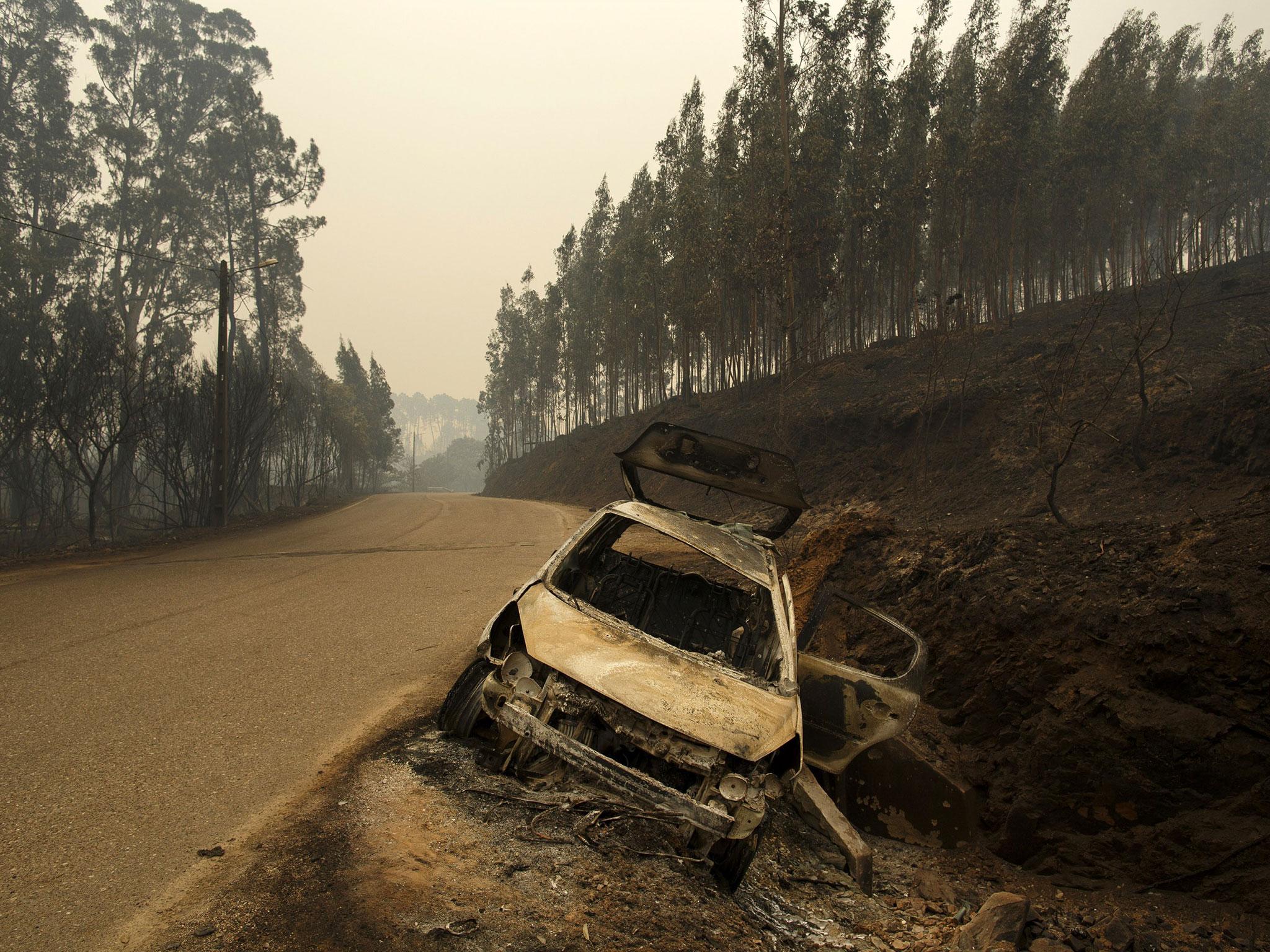Portugal wildfires: At least 62 dead as 2,000 firefighters tackle widespread blazes
British man tells of dramatic escape from flames that engulfed a house he had been building since 2009

More than 2,000 firefighters in Portugal battled to contain major wildfires in the central region of the country, where one blaze killed 62 people.
Authorities have faced mounting criticism for not doing more to prevent the tragedy.
Reinforcements, including more water-dropping planes from Spain, France and Italy, were due to arrive as part of a European Union cooperation programme, officials said.
However, giant clouds of smoke were preventing their deployment on wildfires in the central region of the country.
Civil Protection Agency commander Elisio Oliveira told reporters on Monday that cooler night-time temperatures helped firefighters bring some blazes under control.
However, some of the wildfires are still racing through inaccessible parts of hill ranges about 150 kilometres (93 miles) north-east of Lisbon.
A British man told of his dramatic escape from a wildfire that engulfed a house he had been building since 2009 in central Portugal.
Daniel Starling, from Norwich, jumped in his car and raced away as the flames bore down during Saturday’s blaze.
He came across a family of four elderly people and stopped to pick them up. The 56-year-old said: “We stopped at one point, because we did not know where to go, because there were flames everywhere.
“But I just carried on the only way that I knew. [It was] just flames over the car and the family and me screaming.”
Mr Starling told the Associated Press that he had to speed around trees that had fallen on the road and had to go off the road. He finally came across a policeman at a junction, where he stopped. “The family got out and they were kissing the car,” Mr Starling added.
Portugal is observing three days of national mourning after the deaths on Saturday night around the town of Pedrogao Grande, about 150km north of Lisbon.
Scorching weather, with temperatures surpassing 40C (104F), as well as strong winds and dry woodland after weeks with little rain fuelled the blazes, by far the deadliest on record. The fire area is covered in dense woodland over steep hills.
Portugal’s leading environmental lobby group, Quercus, issued a statement blaming the blazes on “forest management errors and bad political decisions” by governments over recent decades.
The association rebuked authorities for allowing the planting of huge swathes of eucalyptus, the country’s most common and most profitable species – but one that is often blamed for stoking blazes.
Emergency services have been criticised for not closing a road where 47 of the deaths occurred as people fled the flames on Saturday night. The government has acknowledged that the huge fires occasionally led to a breakdown in communications.
Wildfires are an annual scourge in Portugal. Between 1993 and 2013, Portugal recorded the highest annual number of forest fires in southern Europe, according to a report last year by the European Environment Agency.
The government announced a raft of new measures against wildfires in March. They included restrictions on eucalyptus plantations and a simplified and cheaper programme of property registration that seeks to ascertain which land is being neglected. Not all of those reforms have come into legal force yet.
Statistics show that 35 per cent of Portugal is covered by woodland. The forest industry, especially the production of paper pulp, accounts for around 3 per cent of GDP.
AP
Join our commenting forum
Join thought-provoking conversations, follow other Independent readers and see their replies
Comments
Bookmark popover
Removed from bookmarks